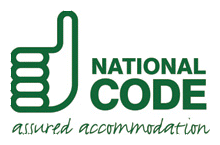“Paranoia is just a heightened sense of awareness”
We are still offering our support group once a week, giving you the best support and advice possible.
Coventry – Wednesdays, 1pm – 3pm
Leicester – Thursdays, 2pm – 4pm
It’s important that we provide you with the support you need, so we are focussing our sessions on topic requests by students.
This week focussed on paranoia, what is it? How can it affect you? How can you control it?
The word paranoid is thrown around quite a lot these days, so we wanted to look at what this actually means.
Paranoia is thinking and feeling like you are being threatened in some way, even if there is no evidence, or very little evidence, that you are. Paranoid thoughts can also be described as delusions. There are lots of different kinds of threats you might be scared and worried about.
What things can you be paranoid about?
It is different for everyone, so you might have a different experience of paranoia compared to your friend. Here are some examples of common types of paranoid thoughts:
- Being talked about behind your back
- Others trying to make you look bad or exclude you
- You think you are at risk of being harmed or killed
- People are using hints and double meaning to secretly threaten you or make you feel bad
- Other people are deliberately trying to upset or irritate you
- People are trying to take your money or possessions
- Your actions or thoughts are being interfered with by others
- You are being controlled or that the government is targeting you
How can you help yourself?
If you are experiencing paranoid thoughts, there are things you can do yourself to cope. You may choose to try them on their own or alongside treatment.
- Keep a diary
- Question and challenge your paranoid thoughts
- Look for support around you
- Learn to relax
- Look after yourself
This is such an in depth topic, with many elements, all of which you can find in our session content.
So, if you were unable to make it – or if you wanted a refresher- you can download the content here.
If you feel you need help or support, please contact welfare@codestudents.co.uk




